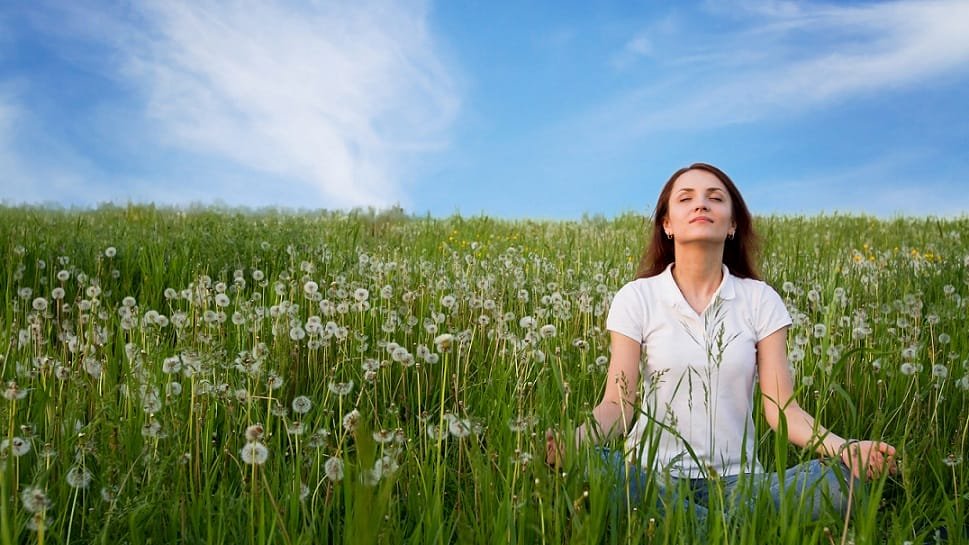How Women Can Thrive by Living Close to Nature
Living close to nature offers women a profound opportunity to enhance their physical health, mental well-being, and overall quality of life. In an increasingly urbanized world, reconnecting with nature not only provides a sanctuary from daily stressors but also offers numerous health benefits.
This comprehensive guide explores the ways women can integrate nature into their lives and examines the multifaceted advantages for their mental, emotional, and physical well-being.
The Call of Nature: Understanding the Appeal
Nature has an innate ability to soothe, inspire, and rejuvenate. For women, who often juggle multiple roles and responsibilities, spending time in natural surroundings can offer a retreat and a source of empowerment. Here’s why living close to nature is beneficial:
- Stress Reduction: Natural environments have been shown to lower cortisol levels, reduce stress, and promote relaxation, offering a natural antidote to the pressures of modern life.
- Mental Clarity: Immersion in nature enhances cognitive function, improves focus, and boosts creativity, providing mental clarity and perspective.
- Physical Activity: Outdoor activities such as hiking, gardening, and swimming promote physical fitness, cardiovascular health, and overall vitality.
- Connection to Seasons: Living close to nature allows for a deeper connection to seasonal rhythms, fostering a sense of belonging and harmony with the natural world.
Creating a Nature-Centric Lifestyle
Integrating nature into daily life doesn’t always require relocating to remote areas. Here are practical ways women can live close to nature:
-
Choosing a Nature-Inspired Home Environment
- Suburban Retreat: Opt for neighborhoods with green spaces, parks, and tree-lined streets that offer proximity to nature without sacrificing urban conveniences.
- Rural Living: Consider living in rural areas or small towns surrounded by forests, mountains, or bodies of water, where nature is an integral part of daily life.
- Urban Oasis: Create a nature-inspired home environment with indoor plants, natural light, and views of greenery to bring the outdoors inside.
-
Engaging in Outdoor Activities
- Hiking and Trail Walking: Explore local trails, nature reserves, or national parks to experience the therapeutic benefits of hiking and reconnecting with natural landscapes.
- Gardening: Cultivate a garden or maintain a balcony garden to nurture plants, grow fresh produce, and enjoy the therapeutic benefits of gardening.
-
Prioritizing Nature-Based Leisure
- Picnic and Outdoor Dining: Enjoy meals outdoors, whether it’s a picnic in the park or dining in your backyard, to savor nature’s beauty and nourish the senses.
- Nature Photography: Capture the beauty of natural landscapes, wildlife, and seasonal changes through photography as a creative outlet and mindfulness practice.
- Birdwatching and Wildlife Observation: Observe local birds, wildlife, and flora to deepen appreciation for biodiversity and cultivate a sense of wonder in natural surroundings.
Health Benefits of Living Close to Nature
Living close to nature offers profound advantages for women’s physical health, mental well-being, and overall quality of life:
-
Physical Health
- Exercise and Fitness: Outdoor activities promote physical fitness, cardiovascular health, and muscle strength, contributing to overall well-being and vitality.
- Sunlight and Vitamin D: Exposure to natural sunlight supports vitamin D synthesis, strengthens bones, and enhances immune function.
- Air Quality: Fresh air and reduced exposure to indoor pollutants improve respiratory health and decrease the risk of allergies and respiratory conditions.
-
Mental and Emotional Well-being
- Stress Reduction: Nature’s calming effect lowers cortisol levels, reduces stress, and alleviates symptoms of anxiety and depression.
- Mindfulness and Relaxation: Natural settings promote mindfulness, relaxation, and mental clarity, fostering a sense of peace and inner calm.
-
Social Connection and Community
- Outdoor Social Activities: Participating in outdoor group activities, community gardening projects, or nature walks fosters social connections and a sense of belonging.
- Supportive Networks: Engaging with like-minded individuals in nature-based communities or environmental groups builds supportive networks and enhances social well-being.
-
Spiritual and Cultural Connection
- Spiritual Renewal: Nature serves as a source of spiritual renewal, offering opportunities for reflection, meditation, and connection to a higher purpose.
- Cultural Heritage: Exploring natural landscapes preserves cultural heritage, indigenous knowledge, and traditions rooted in sustainable living practices.
Tips for Embracing a Nature-Centric Lifestyle
-
Daily Nature Rituals:
- Morning Nature Walks: Start your day with a brisk walk or jog in a nearby park or green space to invigorate your senses and set a positive tone for the day.
- Outdoor Meditation: Practice mindfulness or meditation outdoors, focusing on natural sights, sounds, and sensations to center yourself and reduce stress.
-
Nature-Inspired Home Environment:
- Biophilic Design: Incorporate biophilic design principles into your home, such as natural materials, indoor plants, and ample natural light, to create a calming and harmonious living space.
- Outdoor Living Spaces: Create outdoor living areas with comfortable seating, ambient lighting, and natural elements to relax, entertain guests, and reconnect with nature.
Conclusion: How Women Can Thrive by Living Close to Nature
Living close to nature enriches women’s lives by promoting physical health, mental well-being, and emotional resilience. By integrating nature into daily routines, engaging in outdoor activities, prioritizing self-care, and fostering community connections, women can cultivate a deeper appreciation for the natural world and experience the transformative power of living in harmony with nature.
Learn how women can thrive by living close to nature, embracing its benefits for physical health, mental well-being, and a fulfilling lifestyle.




